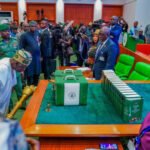The sentencing of a journalist to six months in prison for allegedly insulting an official in Tunisia is a blatant violation of press freedom and human rights.
Development Diaries reports that Mohamed Boughalleb, who had been accused of insulting a civil servant, was convicted on 17 April and will remain behind bars.
According to a report by Africanews, Boughalleb has been behind bars since last month after a civil servant filed a complaint against him.
It is understood that a member of the Tunisian Ministry of Religious Affairs claimed to have been aggrieved by Boughalleb’s comments linking him to corruption and misuse of public funds after Boughalleb questioned, on Facebook, the official’s foreign trips with the minister and called them a ‘waste of public funds’.
This sentencing represents a regressive step for Tunisia, a country that has been lauded for its progress towards democracy following the Arab Spring.
Freedom of the press is a cornerstone of any democratic society, as well as allowing journalists to hold those in power accountable and to freely express their opinions without fear of persecution.
The fact that a journalist was imprisoned for merely questioning a public official creates a risky precedent and sends a negative message to other journalists, hindering their capacity to carry out their crucial role in society.
Such draconian punishment undermines the fundamental principles of democracy and the rule of law and shows a worrying trend of authoritarianism and intolerance for dissent within the Tunisian government.
Journalists should be able to fulfil their duty to inform the public and provide independent scrutiny of those in power without the threat of imprisonment or harassment.
The imprisonment of Boughalleb is a violation of his right to freedom of expression and erodes public trust in the government’s commitment to upholding democratic values.
Development Diaries calls on the Tunisian government to respect the rights of journalists and uphold its obligations under international law, and release Boughalleb.
Failure to do so not only risks the safety and well-being of journalists but also jeopardises the future of democracy and freedom of expression in the North African country.
Source: Africanews
Photo source: Mohamed Boughalleb





